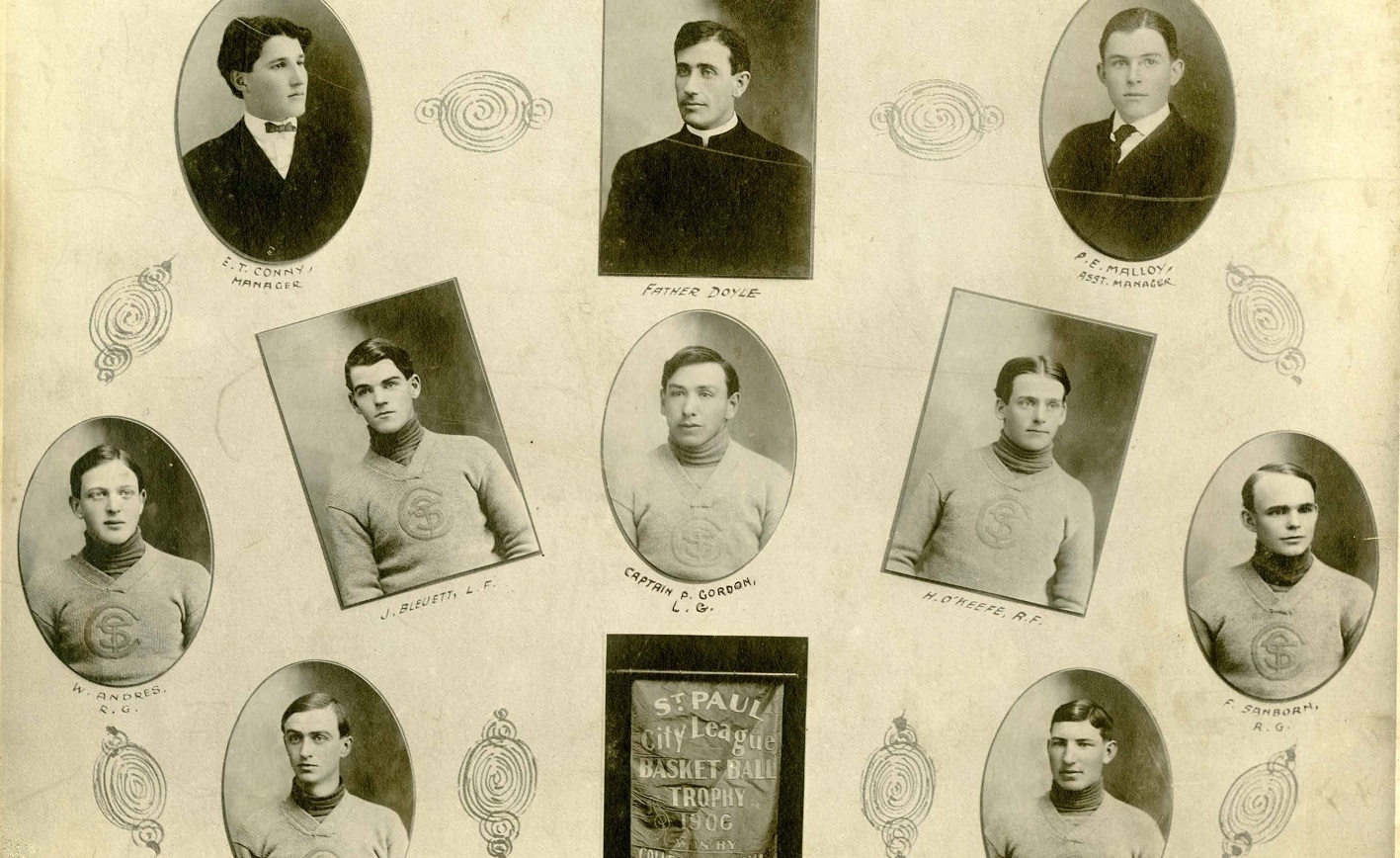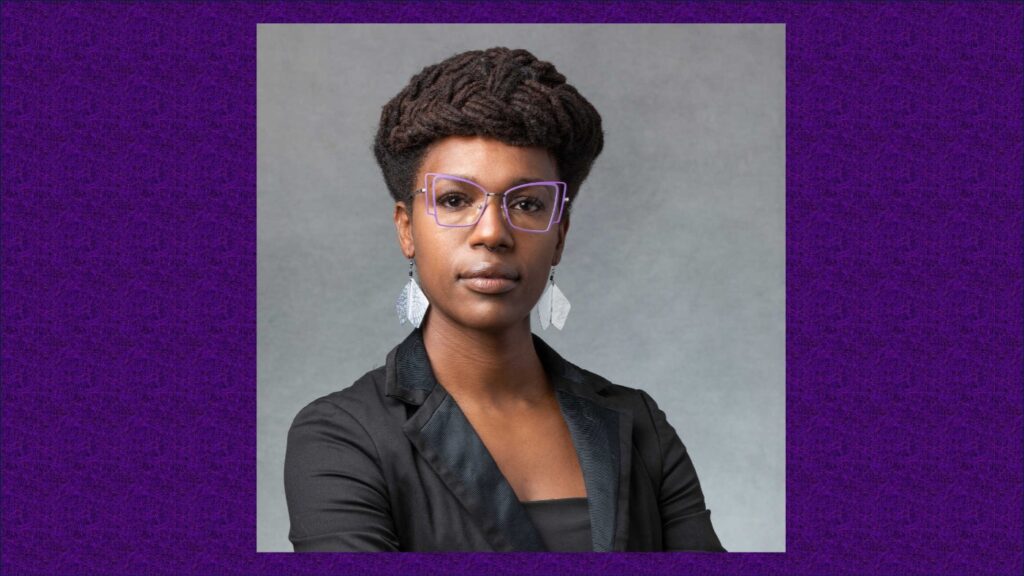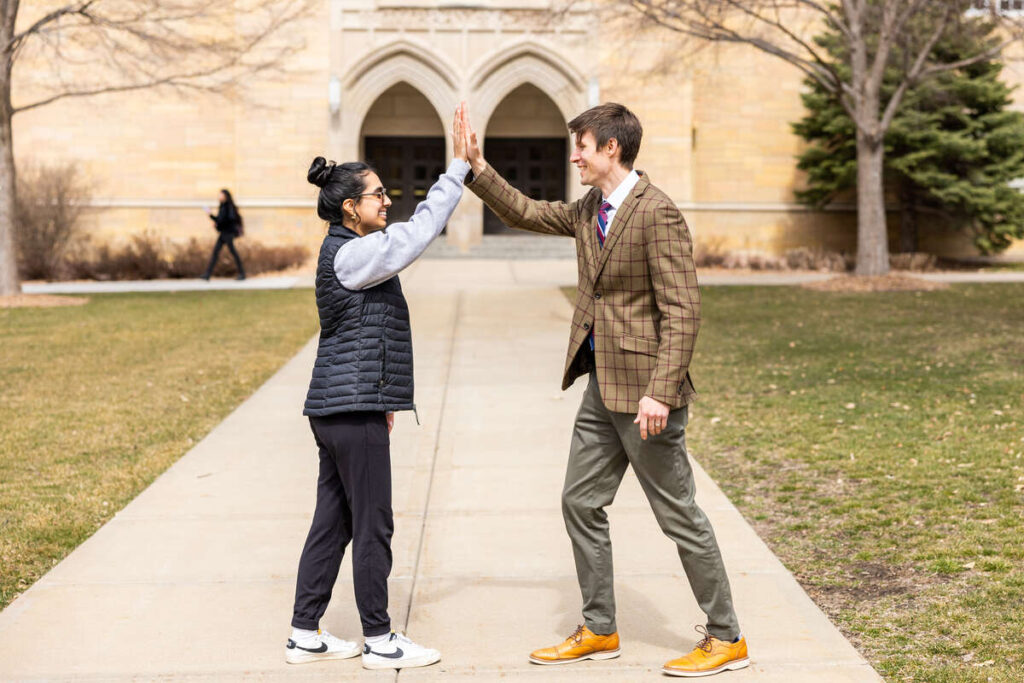During this Native American Heritage Month, Ann Kenne, head of special collections and archivist at St. Thomas, writes about Father Philip Gordon – a Roman Catholic priest, champion for Native American rights and St. Thomas' first Native American graduate.
Gordon was born in the small town of Gordon, Wisconsin, in 1885. A member of the Bad River Band of Lake Superior Chippewa, he was given the Ojibwe name Tibishkogijik, meaning “Looking Into the Sky.” Before enrolling at the College of St. Thomas in 1904 to prepare for the seminary, he attended the St. Mary’s Mission School, Superior State Normal School and North Wisconsin Academy.
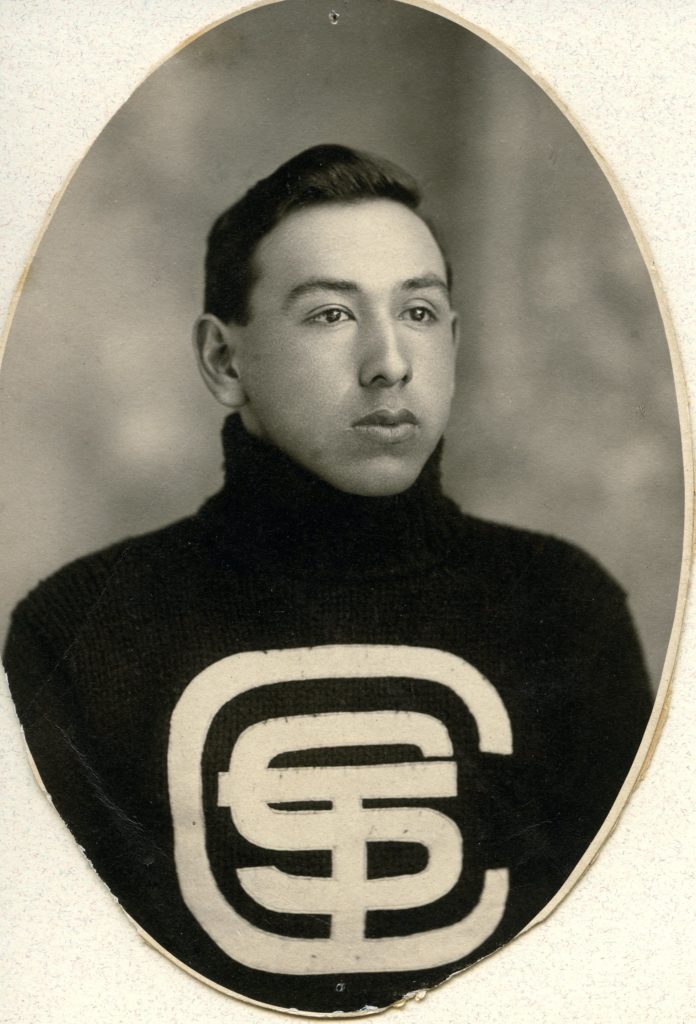
Gordon was by all accounts a popular student, a gifted athlete and a noted scholar during his time at St. Thomas. He wrote for the college magazine (the Collegian), participated in theatrical productions, and was a member of the St. Thomas Total Abstinence Society. As captain of the basketball team and member of the football and baseball teams, he earned more varsity letters than any of his contemporaries. At the 1908 commencement ceremony, his scholastic achievements were recognized through the award of the gold medal for General Academic Excellence.
Gordon began his studies for the priesthood at The Saint Paul Seminary in 1908. After two years, he transferred to the American College in Rome and later to the University of Innsbruck (Austria). In 1913, upon his return to the United States, Gordon was ordained for the Diocese of Superior – the second Native American Catholic priest ordained in the United States.
After assisting at mission churches in Wisconsin, Gordon was named in 1915 assistant director of Catholic Indian Welfare for the Bureau of Catholic Missions. He spent most of the next two years assigned to the Haskell Indian School in Lawrence, Kansas. By 1917, he was forced out of this position after his reports of irregularities and discrimination at the school prompted a government investigation.
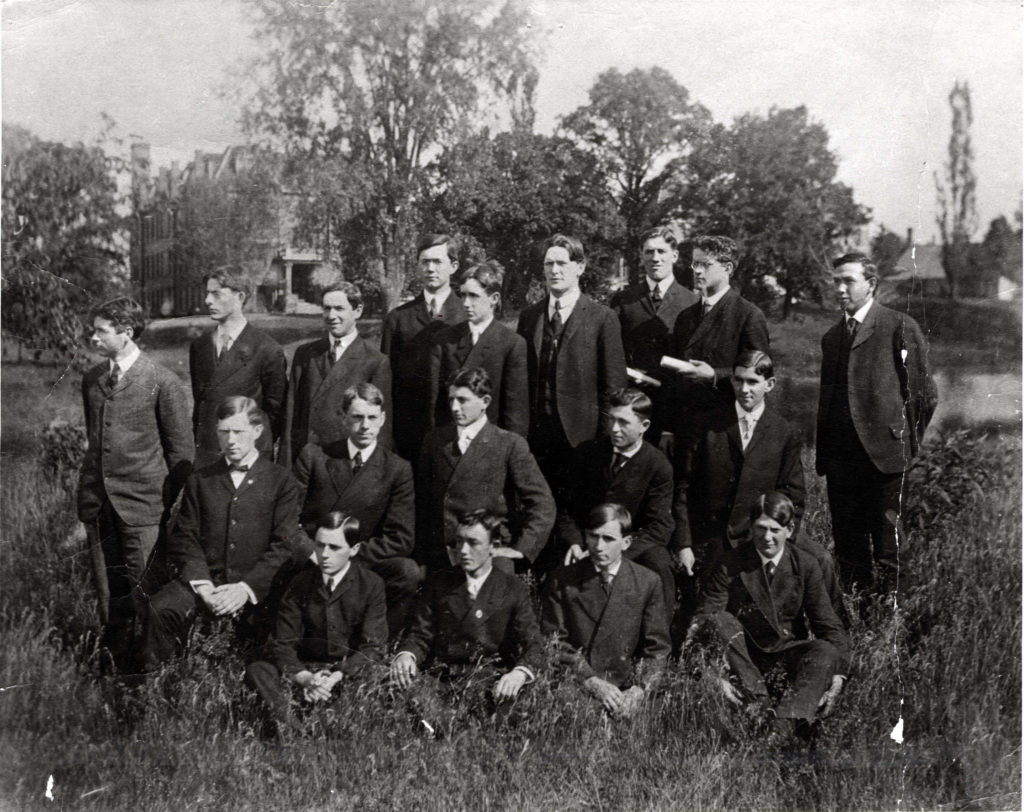
Gordon returned to the Diocese of Superior in 1918, where he was assigned to St. Francis Salono church in Reserve, Wisconsin. From this base, he ministered to the Lac du Flambeau and Lac Courte Oreilles reservations and six other mission churches in northwest Wisconsin. He used his position to advocate for proper food and medical care for the Indigenous people living on the reservation, citizenship for all Native Americans and the abolition of the Bureau of Indian Affairs (BIA). As a result of these activities, Gordon was accused in 1923 by the Bureau of Indian Affairs of misconduct. While he was cleared of the allegations, Gordon was relieved of his mission duties.
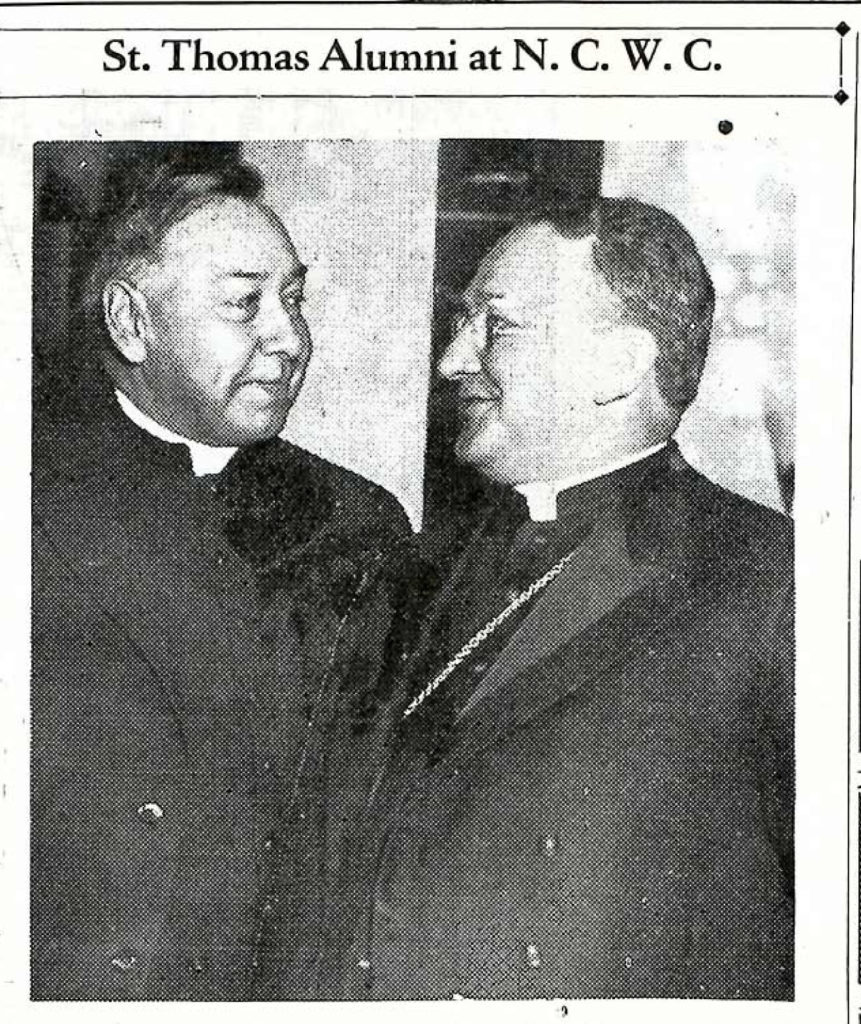
1933
He was then appointed pastor of St. Patrick’s Church in Centuria, Wisconsin. From this post in a primarily Irish and German parish, Gordon remained active in promoting for the welfare of Native Americans and gained a national profile for his advocacy. Gordon was an active member of the Society of American Indians, serving as its president in 1923. He was appointed to the “Committee of One Hundred,” which advised and recommended reforms of Native American policy to President Calvin Coolidge. The Indian Achievement Award from the Indian Fire Council of Chicago was presented to him in 1944. Upon his death in 1948, The New York Times recognized him as “Wisconsin’s Fighting Priest” for his advocacy work on behalf of Indigenous peoples.
More Tales from the Archives
-
Tales from the Archives: Hispanic Pre-College Project
People & Culture -
Tales from the Archives: Life in the Residence Halls
People & Culture -
Tales from the Archives: Summer Programs on Campus
People & Culture -
Tales from the Archives: Lake Mennith and Mennith Hall
University News
